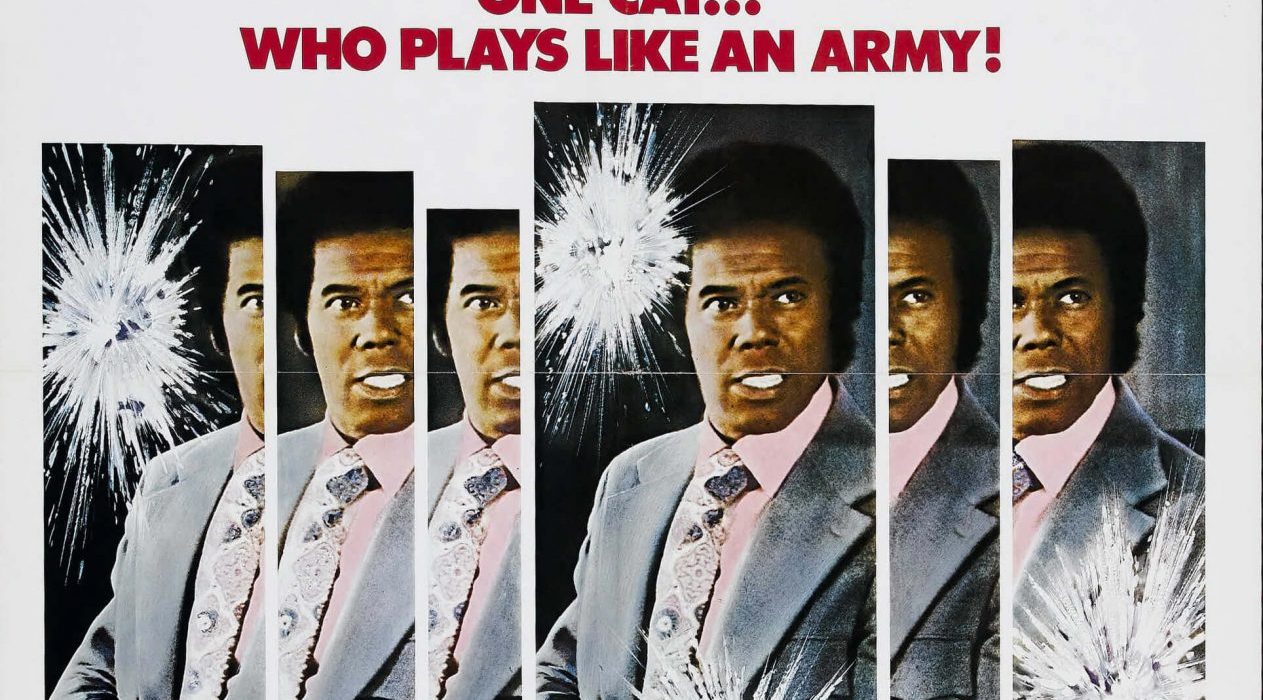Starring: Robert Hooks, Paula Kelly, Paul Winfield and Ralph Waite
Rated: R Crime/Drama
This film is about a character, simply known as “Mr. T.”, (Robert Hooks) a fearsome “fixer” of problems that plague the Black people of the South Central community in Los Angeles. A private eye, Mr. T. is highly successful, as evidenced by the accommodating treatment he receives by many on both sides of the law. His success is also shown by his accumulated material wealth, including a 1972 Lincoln Continental Mark IV, 2-door hardtop; tailored clothing and a posh penthouse in an upscale high-rise building.
Mr. T. is hired by partners, Chalky Price (Paul Winfield) and Pete Cockrell (Ralph Waite), to protect their illegal gambling operation of dice games. Their operation, moving from spot to spot, had been robbed by masked men several times prior. Unable, for obvious reasons, to attain justice from the police, they seek assistance from Mr. T. to discover the source behind the stick-ups. T, ever the businessman, accepts the assignment. However, he is ignorant to the beef between his new employers and Big (Julius Harris), a kingpin and rival for territory that Chalky and Pete want for themselves.
When Mr. T.’s investigation goes sideways and he is sought for the murder of a man who worked in one of Big’s crews, an unexpected chain of events is set in motion. However, with the help of his lady friend, Cleo (Paula Kelly) and right-hand man, Jimmy (Bill Henderson), Mr. T may be down but he is far from out. As the promotion for the film cautioned viewers about the “too cool for school” lead character, “He carries two guns: one to stop trouble and one to make trouble!”
Even accompanied by a soundtrack that was the first album to be written and produced solely by Marvin Gaye, Trouble Man did not do well at the box office. While some critics have panned this movie, journalist Jimi Izrael expressed the dilemma of conflicting views regarding this film in his article, “’Trouble Man’ at 40: A Classic but Where’s Its Cult?” For certain, this film has influenced popular culture, from actor Lawrence Tureaud, professionally known as “Mr. T.”, to award-winning rapper, T.I., who named one of his LPs, “Trouble Man: Heavy is the Head”.
In the article, Izrael acknowledges the love-hate relationship viewers have with the film. He discussed three reasons why the movie does not have a legacy similar to other highly-regarded Blaxploitation films. Izrael specifically contrasts Trouble Man with Shaft, another film about a Black detective, that had been released in theatres almost one year before Trouble Man. Lack of easily recognizable iconography, the characterization of Mr. T. as a pro-Black race man of his urban, West coast community, and a soundtrack that seemed more atmosphere than anything else are reasons pivotal, for some, to render Trouble Man immemorable.
However, there are those who share the sentiment of Izrael in his assertion that Trouble Man, “… is a true form of Blaxploitation – less a genre film packaged for crossover, more a complete work with a narrative tailored for a specific audience that was hungry for no-nonsense heroes.”

